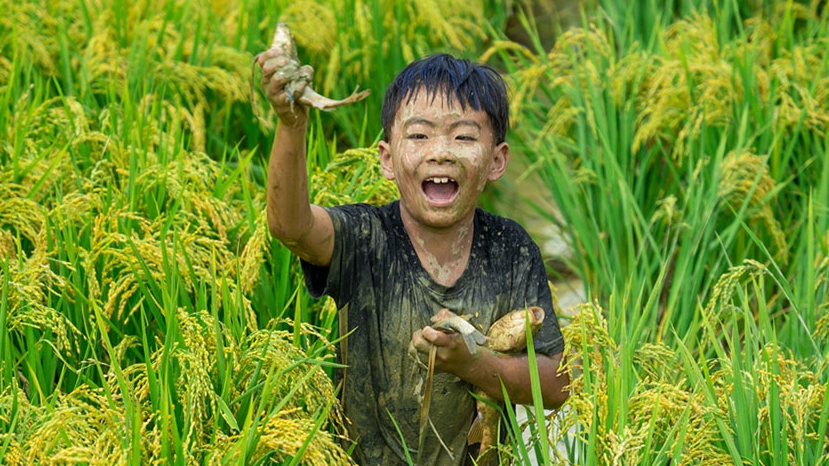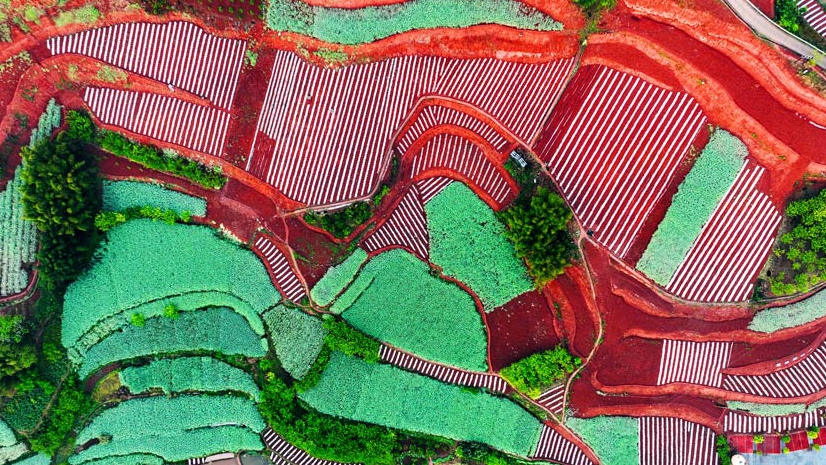Former fishermen embrace new role as guardians of Yangtze
* On Jan. 1, 2021, a 10-year fishing ban took effect in pivotal waters of the Yangtze. Chongqing has established a long-term management mechanism for implementing the fishing ban and achieved comprehensive law enforcement cooperation in interprovincial boundary waters.
* Owing to the persistent efforts, the rare fish population has recovered notably.
* The air quality and forest coverage rate in Chongqing have also seen improvements due to a series of pollution control and prevention, and afforestation measures.
CHONGQING, Sept. 12 (Xinhua) -- Amid the autumn rain, Liu Hong carefully steered his fishing boat on the upper reaches of the Yangtze River to check for any illegal fishing activities.
Liu, 50, is head of a voluntary patrol team guarding a national nature reserve of rare fish. The patrol squad, established eight years ago with the support of local government, has 11 members, the majority of whom once relied on fishing for a living.
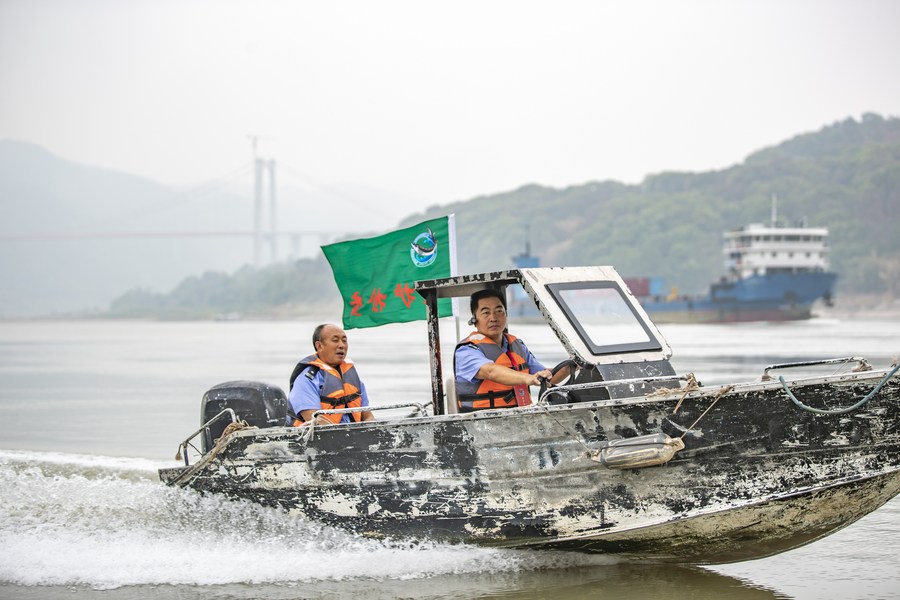
Liu Hong (R), head of a voluntary patrol team, pilots a boat to patrol in a national nature reserve of rare fish in the upper reaches of the Yangtze River in southwest China's Chongqing, Sept. 2, 2022. (Xinhua/Huang Wei)
The change of the role of these fishermen is a result of efforts made by southwest China's Chongqing Municipality to protect the ecological environment of China's "mother river."
AGAINST ILLEGAL FISHING
While patrolling the river, Liu often sees fish swimming in the water and wild birds leisurely strolling along the shore.
"The number of poachers is much smaller now, thanks to the stringent protection measures," Liu said.
The story was, however, much different around 2000.
Illegal fishing was rampant back then, resulting in a sharp decline of the rare and endemic fish in the river. Licensed fishermen could barely catch enough fish and had to rely on farming, Liu recalled.
Since the establishment of the voluntary patrol team, local fishermen have waged a campaign against illegal fishing, helping bust more than 1,000 cases of such unlawful activities along the river.
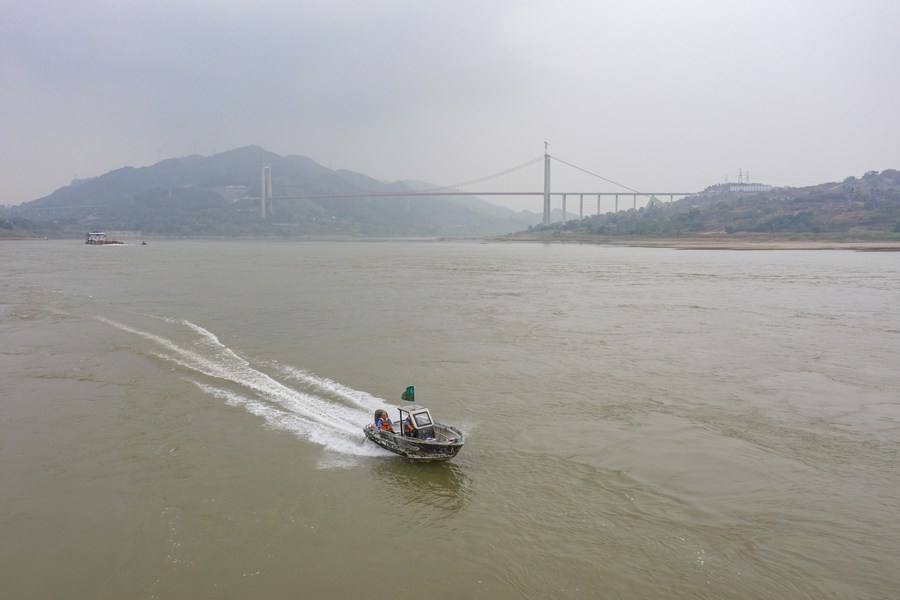
Aerial photo taken on Sept. 2, 2022 shows members of a voluntary patrol team patrolling in a national nature reserve of rare fish in the upper reaches of the Yangtze River in southwest China's Chongqing. (Xinhua/Huang Wei)
On Jan. 1, 2021, a 10-year fishing ban took effect in pivotal waters of the Yangtze. Chongqing has established a long-term management mechanism for implementing the fishing ban and achieved comprehensive law enforcement cooperation in interprovincial boundary waters.
Owing to the persistent efforts, the rare fish population has recovered notably, according to monitoring data released by a research team from the College of Fisheries with Southwest University.
The frequency of occurrence of rare species such as Yangtze sturgeons, rock carp and mullet has been upgraded from "rare" to "occasional" or "common."
GREEN TRANSFORMATION
The national nature reserve of Jinyun Mountain is located in downtown Chongqing. This mountainous area, which was marred by severe pollution years ago, is now dubbed the "green lung" of the megacity.
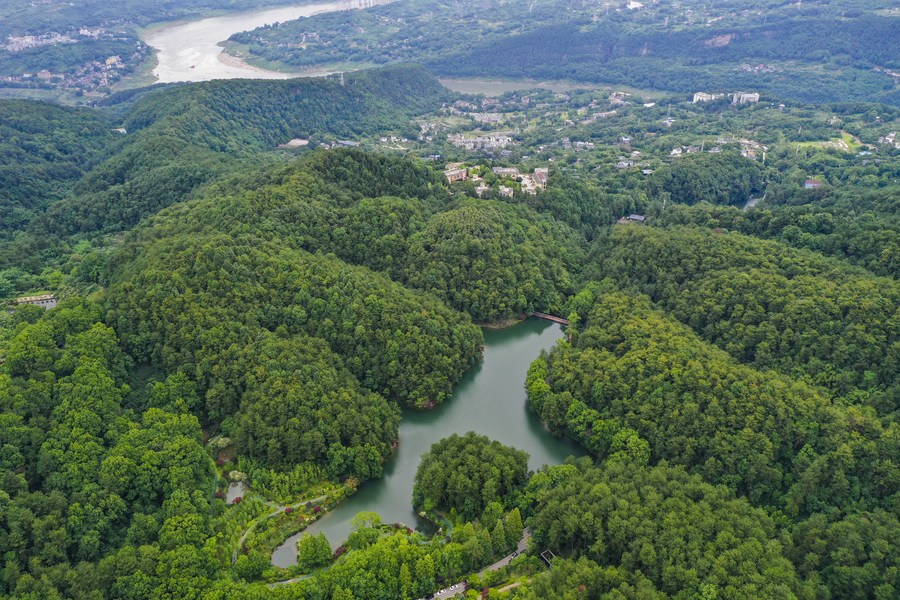
Aerial photo taken on June 4, 2022 shows a view of the Jinyun Mountain in southwest China's Chongqing. (Xinhua/Wang Quanchao)
"In the past, people living in Jinyun Mountain relied heavily on the natural resources and developed homestays without considering the adverse impacts on the ecology," said Qian Gang, Party chief of Bolin Village.
In 2018, a campaign aimed at improving the ecological environment of Jinyun Mountain was launched. More than 600,000 square meters of illegal construction were demolished, restoring over 400,000 square meters of these areas with vegetation.
The restoration of the ecological environment has boosted the incomes of the locals and created new opportunities, as the picturesque landscape and lush mountains have attracted visitors.
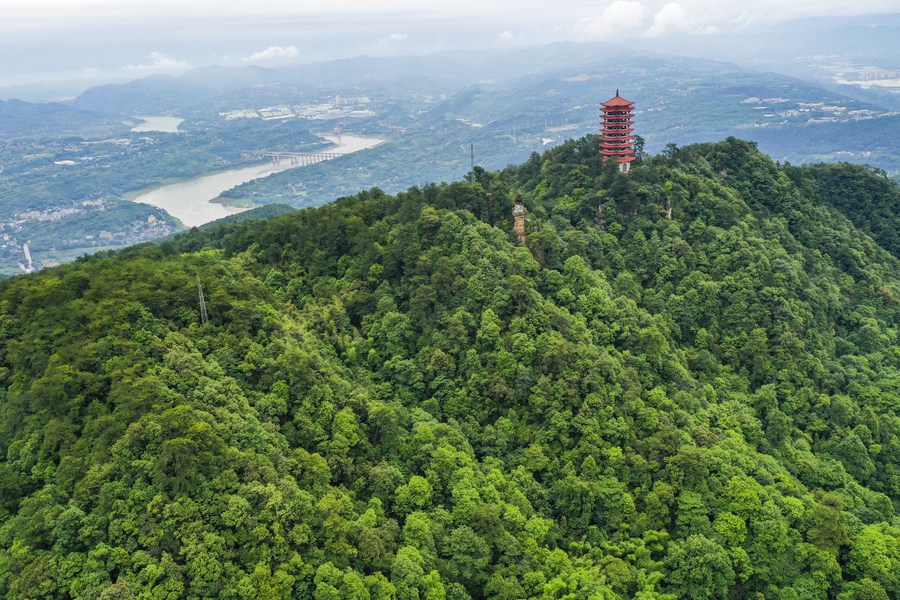
Aerial photo taken on June 4, 2022 shows a view of the Jinyun Mountain in southwest China's Chongqing. (Xinhua/Wang Quanchao)
The air quality and forest coverage rate in Chongqing have also seen improvements due to a series of pollution control and prevention, and afforestation measures.
In 2021, the number of days with good air quality in the city was 326, 23 days more than the figure in 2017; city's forest coverage rate reached 54.5 percent, 8.2 percentage points higher than that in 2017, according to data released by municipal ecology and environment bureau.
"We are committed to the protection of the Yangtze River through joint efforts. We have strengthened our awareness and will work resolutely to build an important ecological barrier along the Yangtze," said Hu Henghua, mayor of Chongqing.
(Reporting by Wu Qiong, Zhao Yufei, Wu Yanxia and Xia Xiao)
Photos
Related Stories
- Wetlands in NW China turn paradise for migratory birds
- New rare butterfly artificial breeding success in east China nature reserve
- Drones help Chinese scientists protect Tibetan antelopes
- Rare endemic plant species discovered in east China's Jiangxi
- China pushes for negotiation of post-2020 global biodiversity framework
- Int'l conference opens to draft world's first ocean biodiversity treaty
- Biodiversity enhanced in China's Qinling Mountains
- Marine ranching helps restore biodiversity in south China island
- China makes notable progress in protecting rare wild animals that call country home
- Tianjin sees improved marine biodiversity
Copyright © 2022 People's Daily Online. All Rights Reserved.






